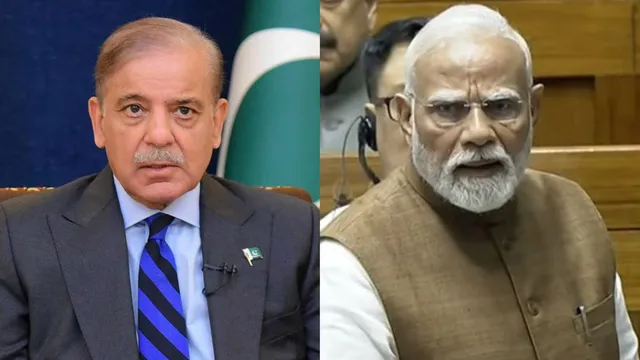- By Shivangi Sharma
- Tue, 11 Nov 2025 11:07 PM (IST)
- Source:JND
A devastating suicide bombing that killed at least 12 people and injured 36 others near the Islamabad District Judicial Complex on Tuesday has triggered a fresh diplomatic row in South Asia. Soon after the explosion, Pakistani Prime Minister Shehbaz Sharif alleged that the suicide attacker infiltrated from Afghan territory “with India’s backing.”
In statements carried by state-run media outlet APP, Sharif accused New Delhi of orchestrating “state-sponsored terrorism” designed to destabilise Pakistan. He further claimed that the same militant network had targeted innocents in Wana, South Waziristan, earlier this week.
Pakistan’s Defence Minister Khawaja Asif escalated tensions further by declaring the country “in a state of war.” He described the bombing as a “wake-up call” and warned that cross-border militancy was no longer limited to the Durand Line.
For decades, Islamabad has accused the Afghan Taliban government of sheltering the Pakistani Taliban, a claim Kabul has repeatedly dismissed. Pakistan has also taken to linking the TTP to India, even dubbing the group “Fitna al-Hindustan” in an attempt to frame the insurgency within a cross-border context.
India Rejects Claims As ‘Delirious Diversion’
New Delhi swiftly denounced Islamabad’s remarks, calling them baseless, irresponsible, and part of a pattern. Ministry of External Affairs spokesperson Randhir Jaiswal stated that Pakistan was attempting to “concoct false narratives” to distract citizens from its internal turmoil, which includes military-backed political reshuffling and constitutional uncertainty.
Our response to media queries on remarks made by the Pakistani leadership⬇️
— Randhir Jaiswal (@MEAIndia) November 11, 2025
🔗 https://t.co/tgzgs65ppm pic.twitter.com/rxwpy8AXK6
“India unequivocally rejects the baseless and unfounded allegations being made by an obviously delirious Pakistani leadership,” Jaiswal said, adding that the international community would not be misled by Pakistan’s “desperate diversionary ploys.”
TTP Claims Responsibility
The TTP, an umbrella jihadist outfit ideologically aligned with the Afghan Taliban but organisationally separate, claimed responsibility for the suicide attack. Officials said the bomber attempted to enter the court premises but detonated his device after failing to breach security. Pakistani security agencies have long described the group as an existential threat, particularly as attacks intensify in regions near the Afghan border.
Pakistan has witnessed a sharp surge in militant activity over the past two years. Security analysts caution that scapegoating foreign actors risks overshadowing structural domestic failures, extremist recruitment, and governance challenges.

